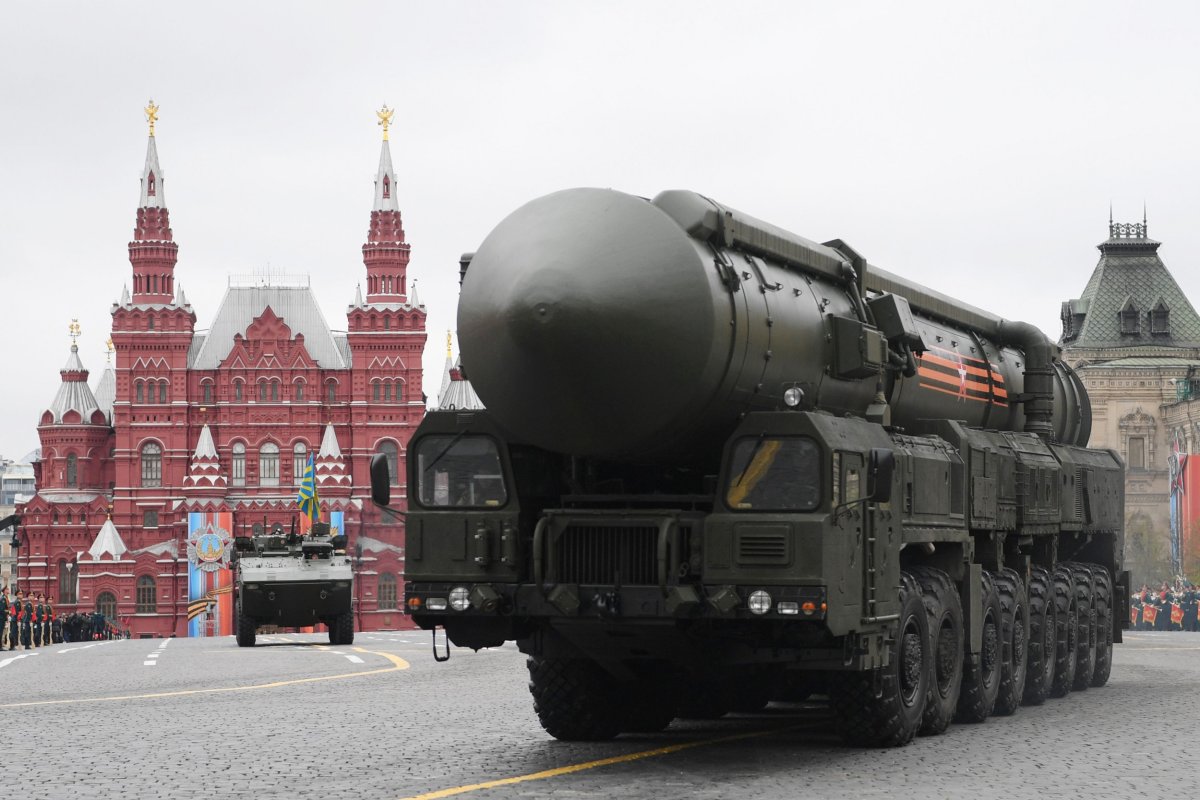Russia's latest nuclear-capable intercontinental ballistic missile—which Russian President Vladimir Putin has claimed can defeat all existing American defenses—will complete its testing phase by the end of 2020, the country's space agency has announced.
Dmitry Rogozin, the head of Russia's state space corporation Roscosmos, told reporters Saturday that the RS-28 Sarmat ICBM—known in the West by its NATO code name "Satan 2"—is already undergoing launch tests ahead of its adoption by Russian armed forces.
"Firing tests are already underway," Rogozin told reporters, according to state news agency Tass. "The bulk of firing tests will be completed by the end of the year. We expect the closing stage of tests at the end of next year."
Though Rogozin said the tests remain on schedule, the adoption of the RS-28 Sarmat has been beset by delays. It was originally supposed to become operational by 2016, but hold ups meant it was only even announced by Putin in March 2018 at his annual state of the nation address.
Putin said that the "invulnerable" silo-based weapon has been in development since 2001, following President George W. Bush's decision to pull out of a 1972 U.S.-Soviet anti-ballistic missile treaty. Revealing the weapon, Putin addressed the U.S. and said he had warned Bush not to withdraw from the treaty. "You didn't listen to our country then," he said, "Listen to us now."
The massive 220-ton weapon will replace the Cold War-era RS-36M Voyevoda missiles. The RS-28 Sarmat will reportedly carry a nuclear payload large enough to wipe out an area the size of Texas or France.
Putin said the missile "has practically no range restrictions," though The Guardian cited state media reports detailing a range of around 6,800 miles. Regardless, the president claimed it can evade "even the most advanced missile defense systems," such as those fielded by the U.S.
Traveling at Mach 10—around 16,000 m.p.h.—the RS-28 Sarmat can carry 10 to 15 warheads, all of which can target a different location. Putin's announcement of the weapon was accompanied by an unsettling CGI video demonstrating its capabilities, in which nuclear warheads were shown falling on a region closely resembling the Tampa Bay area of Florida.
Viktor Bondarev, the head of Russian Senate's Defense and Security Committee, has claimed that the U.S. would need 500 missiles to defend against one RS-28 Sarmat launch.
American defense officials have warned that the U.S. must rethink its overarching military strategy, and pivot from the counter-terrorism stance adopted since 9/11 back to one of great power competition.
As Russian and Chinese military spending increases and their cutting-edge projects progress, the need is ever more pressing. Last August, for example, Air Force General Terrence O'Shaughnessy—who heads up both the U.S. Northern Command and the North American Aerospace Defense Command—said the traditional view of the continental U.S. as a sanctuary from enemy action is defunct.
"We have to think about our defense in different ways than we have in the past," O'Shaughnessy suggested. "That means we need to fundamentally rethink when we say 'homeland defense' how we're going to do that against a peer competitor."

Uncommon Knowledge
Newsweek is committed to challenging conventional wisdom and finding connections in the search for common ground.
Newsweek is committed to challenging conventional wisdom and finding connections in the search for common ground.
About the writer
David Brennan is Newsweek's Diplomatic Correspondent covering world politics and conflicts from London with a focus on NATO, the European ... Read more
To read how Newsweek uses AI as a newsroom tool, Click here.








